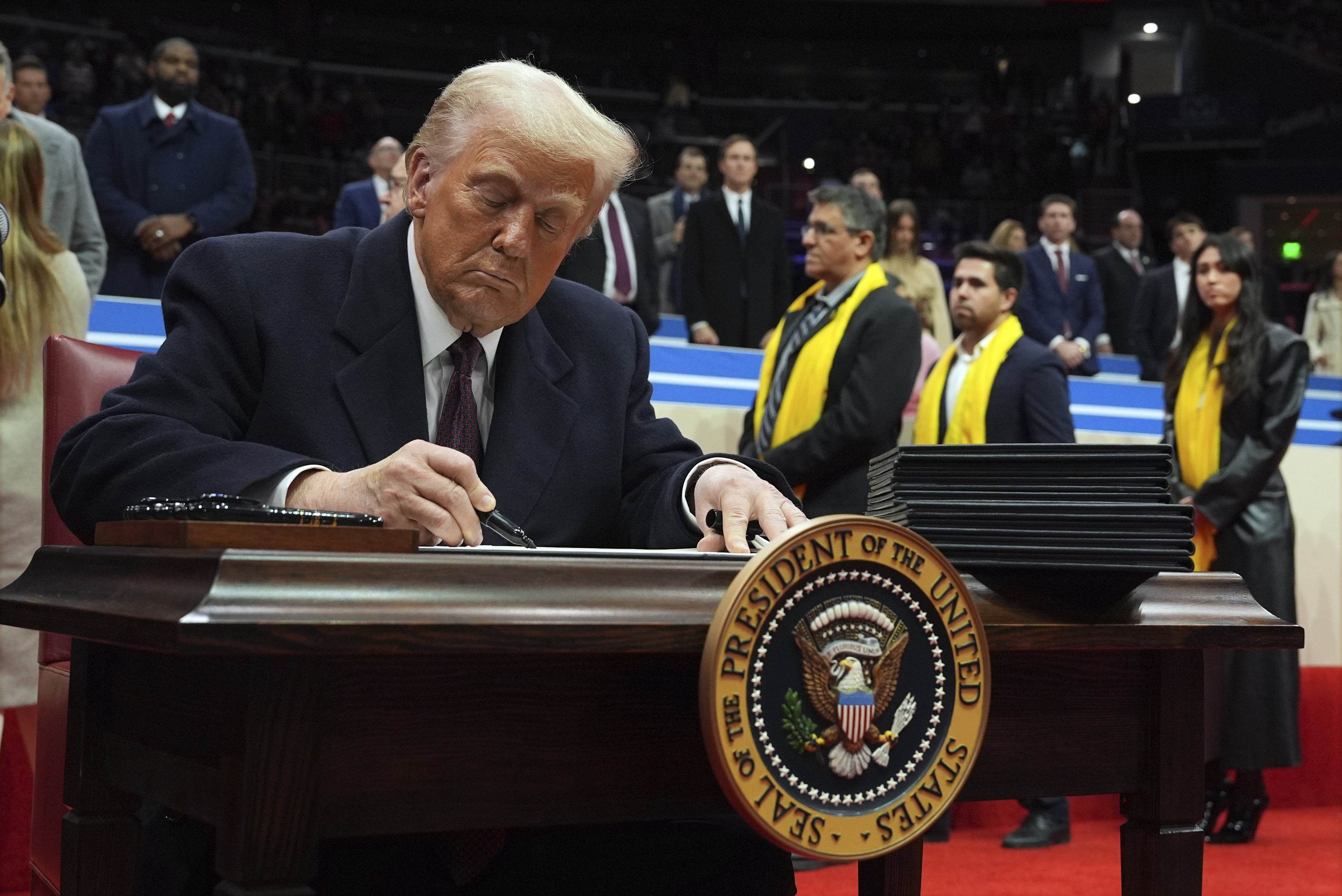
Progressive Democrats celebrated two primary victories Wednesday, claiming the protests over George Floyd’s death and a renewed focus on racial and economic justice have given their candidates new momentum after some rough patches this year.
Michigan Rep. Rashida Tlaib, a member of the “squad” of four first-term congresswomen of color who have drawn attention for their liberal views and distaste for President Donald Trump, scored a convincing victory over Detroit City Council President Brenda Jones. Jones had criticized Tlaib as being too divisive. There also was a stunning win Tuesday by Black Lives Matter activist Cori Bush over longtime Rep. William Lacy Clay in a heavily Democratic St. Louis-area district.
Both Tlaib and Bush, who says she was beaten while protesting the death of Black 18-year-old Michael Brown by a white officer in Ferguson, Missouri in 2014, had support from multiple national progressive organizations. They have rejected corporate political action committee money and called for greater action on climate change, “Medicare for All” and more police accountability. They framed their victories as wins for working people and those who have taken to the streets in recent weeks to demand more than incremental change.
“We are at a turning point in this country as we face down unprecedented crises,” Bush said in a victory speech. “Y'all, we about to change the world.”
Get Tri-state area news delivered to your inbox. Sign up for NBC New York's News Headlines newsletter.
Beyond signaling momentum, the victories are giving progressives confidence about two upcoming tests. Next week, squad member Rep. Ilhan Omar of Minnesota will face a challenge from a well-funded opponent, Antone Melton-Meaux. On Sept. 1, progressive Alex Morse, the 31-year-old mayor of Holyoke, Massachusetts, will try to knock off Rep. Richard Neal, one of the most powerful House Democrats.
The year did not start out on such a positive note.
Sen. Bernie Sanders, a democratic socialist whose 2016 presidential bid mobilized progressives, dropped out of the Democratic presidential primary in April after a series of losses to former Vice President Joe Biden, an establishment candidate who said policies like Sanders’ Medicare for All went too far. In March, a party-backed favorite easily defeated a progressive hopeful in Texas’ Democratic Senate primary. Rep. Henry Cuellar, one of Congress’ most conservative Democrats and a top target of progressive groups such as Justice Democrats, also won his primary.
U.S. & World
But there were other notable triumphs, especially in the weeks after Floyd’s killing in Minneapolis in May sparked global protests.
Rep. Alexandria Ocasio-Cortez, another “squad” member whose 2018 win over a longtime incumbent made her a progressive icon, easily won her New York primary. Middle school principal Jamaal Bowman unseated veteran Rep. Eliot Engel for a Bronx-based seat.
In March, Marie Newman knocked off Illinois Rep. Dan Lipinski, an abortion opponent who compared progressive Democrats to a “tea party of the left."
While progressives “are going to win some and lose some,” former Sanders campaign manager Faiz Shakir said progressive candidates and their ideals are becoming more popular, and forcing change within the party.
“Progressives are in the ascendancy within the Democratic party, there's no doubt about it,” said Shakir, who is now an adviser to Sanders and to the political action committee Fight Corporate Monopolies, which ran ads blasting Clay for being too cozy with corporate America.
Waleed Shahid, spokesman for Justice Democrats, said Bush — who lost to Clay by 20 percentage points in 2018 — was aided this time by a much bigger coalition of progressive supporters and the increased popularity of the Black Lives Matter movement.
“The future of the Democrat party looks a lot more like the squad, and the squad is here to stay,” Shahid said.
In Detroit, Andrew Bryant said he voted for Tlaib because she has been outspoken on behalf of the city's working class and poor, and especially against water service shut-offs for people unable to pay their bills. The 71-year-old said he's among the many Black voters who have seen the Black Lives Matter movement against police brutality grow, and believe the time is now to show their power to enact change.
“We need to get out and vote our opinion,” he said while voting at a church on Detroit's west side Tuesday morning. “It’s important for us as Black people because it seems we’ve been dealt the short stick ... for the longest time, and it’s our turn to speak up and be represented.”
At an event Wednesday in St. Louis, Bush said that “we have to have people who are supporting and advocating for the everyday people,” and warned that members of Congress who are "just holding a seat but not affecting their communities” need to be targeted.
“Those are the ones that people will hopefully rise up and run against," she said.
Associated Press writer Corey Williams in Detroit and Jim Salter in St. Louis contributed to this report.



